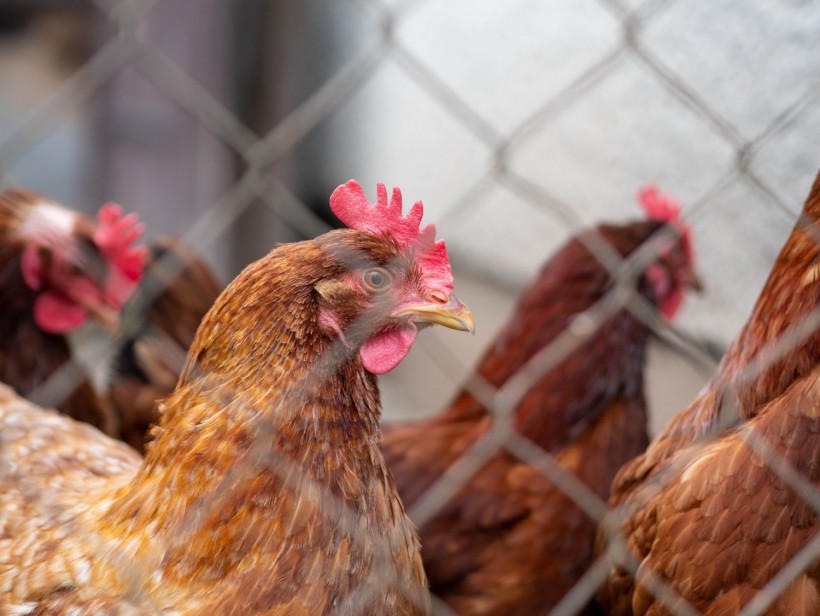
The use of gene editing technology for cultivating chickens with some resistance to bird flu infection was reported in a paper published on Tuesday, October 10, in Nature Communications, marking a first in the scientific community.
Bird flu, which has killed tens of millions of chickens in the previous two years due to an H5N1 outbreak, is a major problem. Yet, the British authors of this new research claim that raising disease-resistant chicks in the lab is a crucial first step in providing farmers with a weapon to fight the problem.
CRISPR gene editing in poultry has the potential to have many positive effects, according to scientists, but they also caution that further study is needed to rule out any negative outcomes.
Ceili Peng, a doctorate student at the Massachusetts Institute of Technology attempting to encode heritable resistance to illnesses in animals, said, "It's still very early stages in terms of getting this up and running to chickens worldwide, but it's a really neat first step. It's definitely worth exploring some of the consequences of our genetic edits."
From Procedure to Discovery
Germ cells were modified by scientists, and then those cells were inserted into fertilized chicken eggs, as noted by USA Today.
Gene ANP32A was targeted for editing because it encodes a protein that helps the influenza virus replicate inside a host cell, as per research author Wendy Barclay at a press conference last week.
According to Reuters, the goal of the research was to block this gene's function in viral replication. Barclay emphasized that this approach is essential to the way the virus operates and hence applicable to all strains, not only H5N1 (bird flu virus).
After the fertilized eggs developed into adult chickens, the researchers mated them with other chickens to produce additional gene-edited chicks while keeping a close eye on the flock's development, behavior, and overall health. After confirming that the altered gene had no negative effect on the hens' development, they were quarantined in an attempt to ascertain whether or not they would be immune to the spread of bird flu.
Gene-edited and non-genetically modified chickens were both infected with a mild strain of the avian flu virus and permitted to freely roam the facility together. The gene-edited chicks were "almost entirely" immune to disease, the researchers discovered.
See Also: South Africa Battles Bird Flu Outbreak, Culling Millions of Chickens and Causing Shortages
Why This Might Be the Future Tech
Experts argue that farmers have few options for protecting their chickens against bird flu.
Farmers should improve biosecurity by preventing chickens from coming into touch with wild birds that may be affected by the virus. Another option is to vaccinate the whole flock, but this is not always the best strategy since it may be expensive, time-consuming, and may not protect against the most recent strain of bird flu.
Gene editing, according to the study's authors, should provide universal protection against the flu, halt the spread of illness in poultry, and put an end to the virus. "It could save ... chickens' lives, an enormous amount of money, and not interrupt the food supply," said Dr. Meghan Schaeffer, a zoonotic influenza epidemiologist.
See Also: Bird Flu Could Lead to Next Pandemic; Mutations Might Allow H5N1 Strains to Infect Humans








